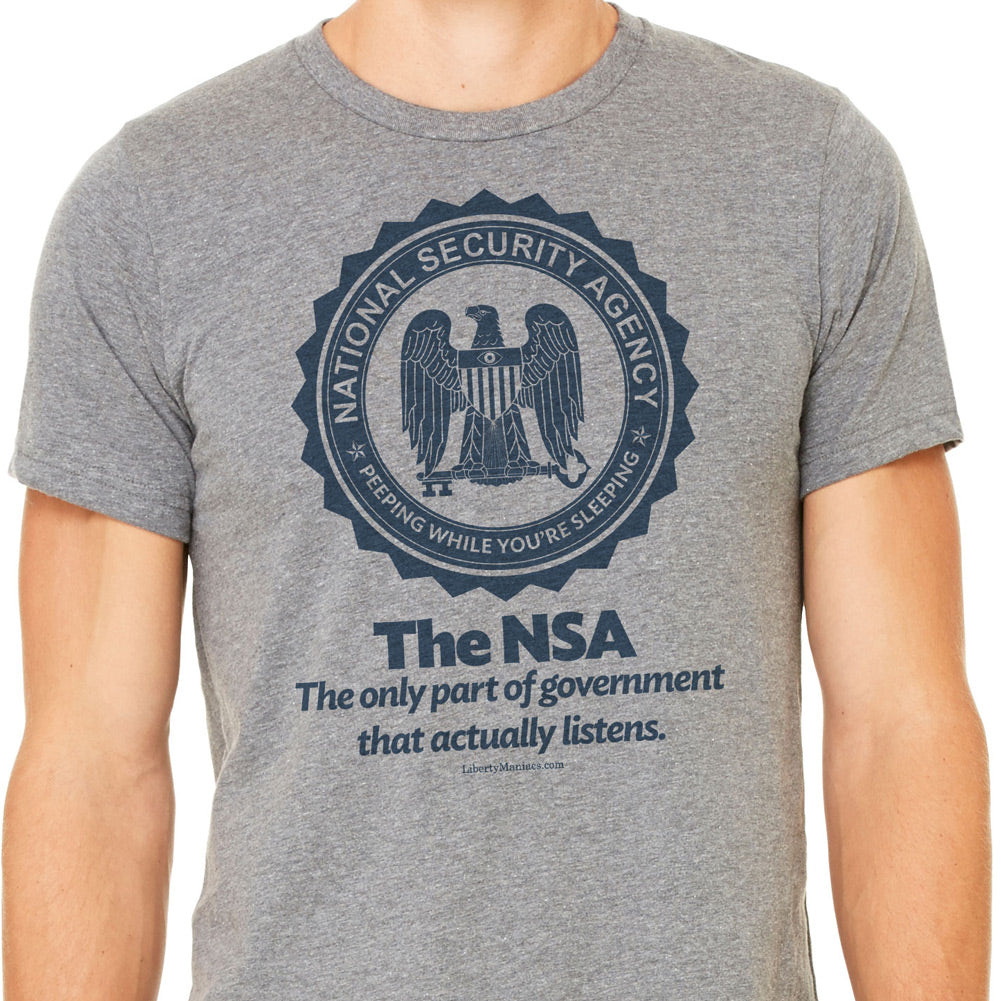Browse Categories
Add description, images, menus and links to your mega menu
A column with no settings can be used as a spacer
Link to your collections, sales and even external links
Add up to five columns
Add description, images, menus and links to your mega menu
A column with no settings can be used as a spacer
Link to your collections, sales and even external links
Add up to five columns
Why the 2nd Amendment is Awesome
July 12, 2024 11 min read

Alright, buckle up, buttercups! We're about to do some serious myth busting on constitutional rights, flirt with the ghost of tyranny, and drop more irony than a Twitter thread on cancel culture. Welcome to "Why the 2nd Amendment is Awesome," where we uncover why this age-old amendment is still the MVP of civil liberties. From its creation as a bulwark against tyranny to its role in protecting minorities and other rights, we’ll debunk, drop truth bombs, and maybe even make you appreciate your right to bear arms a little more.
The Misunderstood Rebel of the Bill of Rights
Let's face it, folks. The Second Amendment is like that weird kid in high school who wore a trench coat year-round and listened to death metal – misunderstood, slightly scary, but oddly intriguing. For years, people have been treating it like it's all about hunting Bambi or protecting your prized collection of limited-edition Funko Pops. But hold onto your avocado toast ladies and gentlemen -- or whatever your pronouns are these days -- because we're about to dive deeper than your average Instagram influencer's philosophical musings.
The True Intent: More Than Just Shooting Beer Cans Off the Fence
Contrary to popular belief, our Founding Fathers – those wigged-out dudes in knee breeches – weren't just thinking about target practice when they penned the Second Amendment. No sir, they had something a bit more badass in mind. Fresh off telling King George to take a royal hike, these powdered-wig warriors weren't about to let some new tyrant waltz in and start bossing them around. So, they came up with this crazy idea: "Hey, what if we let everyone have guns? That'll keep the government on its toes!"The text of the Second Amendment reads like a drunk text from your libertarian cousin: "A well regulated Militia, being necessary to the security of a free State, the right of the people to keep and bear Arms, shall not be infringed." It's like they were playing Constitutional Mad Libs and just went with it. But jokes aside, this verbal word salad emphasizes the connection between an armed populace and maintaining a free state. The Founders recognized that an unarmed population is about as useful against tyranny as a chocolate teapot. So, they said screw it, let's make it so we all have guns. Hell let's make it so we can have cannons if we want!
The Power of an Armed Citizenry: David vs. Goliath, But With More Explosions
Now, I know some of you are rolling your eyes harder than a teenager at a family dinner. "But what about tanks and drones?" you ask, between sips of your craft IPA. Well, let me introduce you to a little thing called asymmetric warfare. It's like David versus Goliath, but with more explosions and less biblical undertones.Let's break it down:
Numerical Advantage: The sheer number of armed citizens in the U.S. is higher than the number of people who claim to have read "Infinite Jest." We're talking millions here, folks. We'll get into this later with a few thought experiments to give you a better idea.
Asymmetric Warfare: History has shown that determined, armed populations can effectively resist even technologically superior forces. Just ask the dudes wearing pajamas in Vietnam or Afghanistan how easy it is to squash a determined population armed with little more than grit, guns, and a healthy disrespect for authority.
Deterrence: The mere existence of an armed populace serves as a powerful deterrent. It's like having a "Beware of Dog" sign, even if your dog is a three-legged Chihuahua named Chiro.
Military Defections: In the event of a tyrannical takeover, many military personnel would likely side with the citizens. Because let's face it, even soldiers don't want to live in a world where freedom is as scarce as a blockbuster video rental store.
A Thought Experiment: Tyranny in Modern America (Or, "The Hunger Games: U.S. Edition")
To illustrate the importance of an armed citizenry, let's dive into a hypothetical scenario that's part "Black Mirror" episode, part young adult dystopian novel, and part fever dream after eating too many spicy tacos.Scenario: A charismatic but dangerous leader rises to power through a combination of populist rhetoric, manipulation of democratic institutions, and really great hair. Once in office, this leader begins to implement policies that target specific minority groups, stripping them of their rights and freedoms faster than you can say "danger to our democracy" in chief Elisabeth Warren's old grating voice.
Now, imagine if these minority groups decided to exercise their Second Amendment rights. Suddenly, you've got millions of armed citizens ready to resist, like a real-life game of Call of Duty, but with better dialogue and less Mountain Dew. Let's break it down:
Jewish Americans: If even 20% of the 7.6 million Jewish Americans armed themselves, you'd have a force of 1.52 million. That's larger than the entire active-duty military of Russia. Oy vey, indeed!
Even if just 3% of American Jews were packin' heat, they'd still outnumber the entire Israeli Army. Just sayin'.
African Americans: If 10% of the 46.8 million African Americans took up arms, you'd have a force of 4.68 million. That's more than triple the size of the U.S. active-duty military. Talk about Black Power!
Gay dudes: If 25% of the estimated 4-5 million gay men in the U.S. armed themselves, you'd have a force of over 1 million. That's a pride parade with some serious firepower.
Hispanic Americans: If just 5% of the 60 million Hispanic Americans armed themselves, you'd have a force of 3 million. That's more than twice the size of the Chinese military. Muy impresionante!
These numbers are more intimidating than trying to assemble IKEA furniture without instructions. Any would-be tyrant would have to think twice before messing with these armed minorities. It's like trying to steal honey from a beehive, if the bees had tiny AR-15s.
Historical Precedents: Because History Doesn't Always Suck
Now, for those of you who slept through history class (no judgment, we've all been there), let's take a quick trip down memory lane to see how armed populations have resisted tyranny in the past:American Revolution: A bunch of farmers and merchants told the most powerful empire in the world to shove it. And won.
Warsaw Ghetto Uprising: Proof that even in the darkest times, resistance is not futile.
Afghan Resistance: These folks have successfully resisted more foreign invasions than you've had hot dinners. They're like the cockroaches of geopolitics – they just won't quit.
Vietnam War: The Viet Cong, armed with little more than determination and really good hiding spots, managed to outlast the most powerful military in the world.
Battle of Athens: In 1946, a group of WWII vets in Tennessee said "not today" to corrupt local officials and restored fair elections. It's like a Hallmark movie, but with more gunfire.
The Founding Fathers' Perspective: What Those Wigged Wonders Really Thought
Our Founding Fathers were more paranoid about government tyranny than your average conspiracy theorist is about lizard people. They had just fought a war against what they saw as an oppressive British monarchy, and they weren't about to let history repeat itself like a bad 80s fashion trend.Thomas Jefferson, that smooth-talking, Declaration-writing ladies' man, wrote: "What country can preserve its liberties if their rulers are not warned from time to time that their people preserve the spirit of resistance? Let them take arms." Basically, TJ was saying, "Keep the government on its toes, or else freedom goes bye-bye."
James Madison, in Federalist No. 46, talked about how armed citizens could serve as a check against a tyrannical federal government. It's like he foresaw the need for civilian oversight before civilian oversight was cool.
Alexander Hamilton (yes, the guy from the musical) argued in Federalist No. 29 that a well-regulated militia was "the most natural defense of a free country." And no, he didn't do it in rap form, unfortunately. Now, before you start picturing some government-issued militia handing out muskets like party favors, let's get one thing straight. When these powdered-wig enthusiasts said "well-regulated militia," they meant regular Joe Schmoes with guns. Because, let's face it, if the government had all the firearms, asking them to arm the people for a potential revolt would be like asking a fox to install a security system in the henhouse. "Oh, you want to overthrow us? Sure thing! Let me just grab my gun catalog and we'll pick out some nice rifles for you." Yeah, right. And I've got a bridge in Brooklyn to sell you, too.
These old dudes were essentially saying, "Trust the people with guns, because the alternative is trusting the government with all the power." And if there's one thing we've learned from history, it's that absolute power corrupts absolutely, and that powdered wigs are a fashion choice best left in the 18th century.
Addressing Common Counterarguments: Or, "But What About...?"
Now, I know what you're thinking. You've got questions. Concerns. Maybe even a strongly worded tweet draft. Let's tackle some of these head-on, shall we?The Futility Argument: "The government has tanks and planes; guns won't help."
Ah yes, the old "but they have bigger guns" argument. President Biden is partial to this one. Look, I get it. The idea of Joe Sixpack and his hunting rifle going up against an F-35 seems about as fair as bringing a knife to a gunfight. But here's the thing – asymmetric warfare is a bit like playing chess with a pigeon. It doesn't matter how good you are at chess if the pigeon keeps knocking over the pieces and pooping on the board.History is full of examples where determined populations with inferior weaponry have effectively resisted advanced military powers. Vietnam, Afghanistan, and even the American Revolution itself are all testament to this. It's not about winning pitched battles; it's about making occupation and control so costly and difficult that it becomes untenable.
Moreover, the goal isn't necessarily to "defeat" the military in direct confrontation. It's about creating a significant deterrent. The prospect of facing millions of armed citizens is enough to make any would-be tyrant think twice. A robber is going to skip a house where they know the owner has a really big German Sheppard. Sure, they could feasibly get away with a heist, but is it worth the risk of losing some fingers? Sociopathic tyrants are creatures of opportunity, not brave soldiers of principle.
And let's not forget – in a scenario of domestic tyranny, it's unlikely the entire military would act as a monolithic force against the population. Many service members would likely side with the citizens. After all, soldiers have families too, and I doubt many of them signed up to oppress their own neighbors. Remember the Civil War? All those generals on both sides went to West Point together. That stuff gets complicated quick.
The Violence Concern: "An armed populace leads to more violence."
This is the "guns are icky" argument, and I get it. Gun violence is indeed a problem. But here's the deal: the Second Amendment doesn't mean we can't have any rules. It's not a free-for-all, like a sample table at Costco on a SaturdayThe Supreme Court has spent a fair amount of time clarifying that while the right to bear arms is an individual right, it's not completely unlimited. We can still keep guns away from felons, the mentally ill, and that guy at the office who microwaves fish in the break room. We can have laws about where you can carry firearms (hint: probably not at a preschool), and we can put some conditions on selling arms (no, you can't buy a howitzer at the drive-thru).
The challenge is finding that sweet spot, like the perfect ratio of milk to cereal. We need to address public safety concerns while still preserving the fundamental right to bear arms. It's a balancing act, like trying to eat a supreme burrito while driving – tricky, potentially messy, but ultimately doable.
Research has also shown clearly that defensive gun use is pretty common, often preventing crimes without shots being fired. It's like having a fire extinguisher – you hope you never need it, but you're glad it's there just in case.
The Modernization Argument: "The Second Amendment is outdated in modern society."
Ah, the old "it's 2024, grandpa" argument. Look, I get it. The Second Amendment was written in an era when powdered wigs were fashionable and bloodletting was considered cutting-edge medicine. But here's the thing – while technology and society have indeed changed dramatically, the fundamental principles of liberty and the potential for governmental overreach remain as relevant as ever.Throughout history, including recent history, we've seen numerous examples of democracies backsliding into authoritarianism. It happens faster than you can say "it can't happen here." The rise of authoritarian regimes in various parts of the world in the 21st century shows that the threat of tyranny isn't just a relic of the past, like dial-up internet or floppy disks.
The digital age has introduced new forms of surveillance and control that the Founders couldn't have imagined in their wildest, wig-powdered dreams. In some ways, this makes the need for ultimate checks on government power even more crucial. The Second Amendment is like that old Nokia phone you keep in a drawer – it might seem outdated, but when the zombie apocalypse hits and the power goes out, you'll be glad you have it.
The International Comparison: "Other democracies function without such broad gun rights."
Ah yes, the "but Mom, all the other countries are doing it" argument. It's true that many other democratic nations have stricter gun laws and don't enshrine the right to bear arms in their constitutions. But comparing the U.S. to other countries is like comparing apples to... well, gun-toting, freedom-loving oranges.The United States is special, like that kid in school who ate paste but somehow always aced the tests. Our Constitution is older than dirt, and yet here we are, still trucking along while other countries have gone through more governments than you've had hot dinners. The U.S. Constitution, ratified way back in 1788, is the oldest written national constitution still in use.
The Second Amendment reflects the Founders' deep commitment to individual liberty and their profound distrust of centralized power. It's as American as apple pie, baseball, and complaining about how apple pie and baseball aren't what they used to be.
While other democracies may not have equivalent constitutional protections for gun ownership, many do have other mechanisms for resisting potential tyranny, like strong civil societies, robust legal systems, and diverse media landscapes. The Second Amendment is just one part of America's broader system of democratic safeguards, like belt and suspenders for your freedom pants.
Wrapping up
So there you have it, folks. The Second Amendment: it's not just about hunting Bambi or protecting your stash of limited-edition Pokémon cards. It's a fundamental safeguard against tyranny, a middle finger to oppression, and a testament to the enduring American spirit of "Don't tread on me, bro."
Is it perfect? Nah. But then again, neither is democracy, your favorite band's latest album, or that homemade sourdough you've been trying to perfect since the pandemic started. The challenge lies in balancing this fundamental right with other important societal concerns, a task that requires ongoing dialogue, careful consideration, and possibly a few stiff drinks.
For those on the political left who may be skeptical of gun rights, consider this: the Second Amendment can protect the very minorities and vulnerable populations you seek to defend. In an era where authoritarianism is on the rise globally faster than the price of eggs, the importance of this constitutional safeguard shouldn't be underestimated.
Ultimately, the Second Amendment embodies a profound trust in the American people – a belief that citizens, when empowered, are the best defenders of their own liberty.
As we continue to grapple with issues of gun violence and public safety, let's remember the deeper purpose of the Second Amendment. It's not just about guns; it's about maintaining the delicate balance of power that underpins American democracy, ensuring that the rights of all citizens – especially the most vulnerable – are protected against the potential abuses of power.
So the next time someone starts yapping about how the Second Amendment is a relic, remind them that so are the wheel and the alphabet, but they remain essential to our lives. It's not perfect, but it's ours, and it's been keeping us free for longer than most countries have been countries.
Leave a comment
Also in Liberty Maniacs News

Enemies of Satire: How Liberty Maniacs Survived Censors, Lawsuits, and the Joke Police
May 01, 2025 3 min read
True tales of the most powerful agencies, politicians, and brands who tried to censor our jokes—and what happened when we fought back.

You’re Not a Nazi. They Just Want You to Shut Up.
March 28, 2025 7 min read
They call you a Nazi so you’ll sit down and shut up—but the man who actually escaped them would say you’re nothing of the sort.

10+ Ways USAID Burns Your Tax Dollars on Pure Insanity
February 19, 2025 4 min read
USAID: where your tax dollars fund transgender operas, Taliban poppy fields, and luxury hotels for migrants—because actual humanitarian aid is so last century.
Recent Articles
- Enemies of Satire: How Liberty Maniacs Survived Censors, Lawsuits, and the Joke Police
- You’re Not a Nazi. They Just Want You to Shut Up.
- 10+ Ways USAID Burns Your Tax Dollars on Pure Insanity
- Trump’s Day-One War on the Government-Censorship Hydra
- The Ultimate Guide to Men's Clothing Sizing
- The Ideological Capture Behind the Woke Left's Meltdown Over Trump's 2024 Victory
- The Yuri Bezmenov Playbook: A Guide to Ideological Subversion
- 198 METHODS OF NONVIOLENT POLITICAL ACTION
- Why the 2nd Amendment is Awesome
- I Have A Nightmare
Sections You Might Like
Subscribe
Sign up to get the latest on sales, new releases and more …








